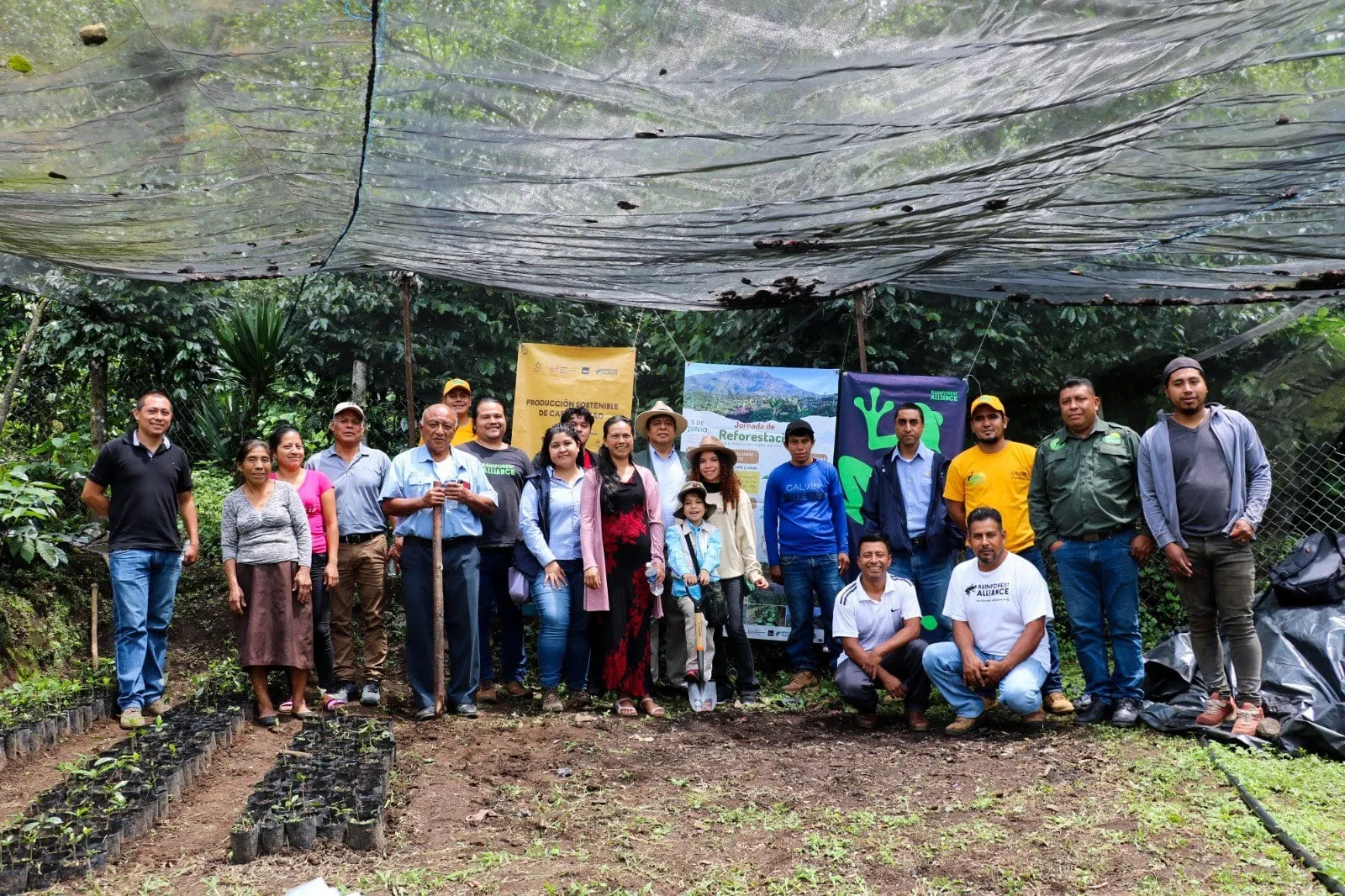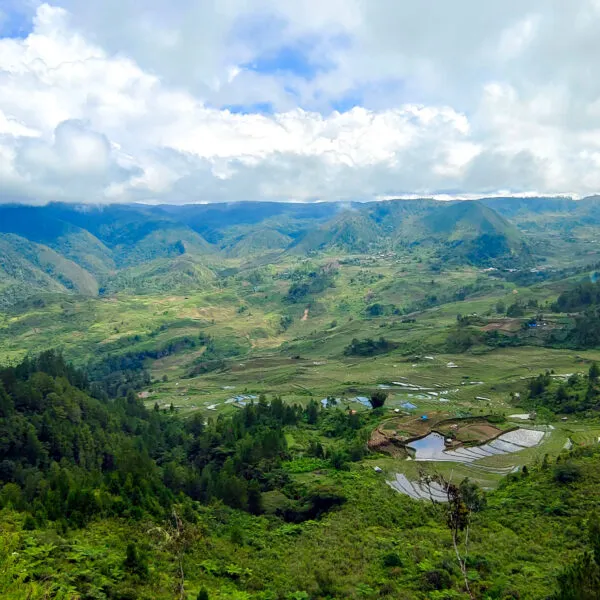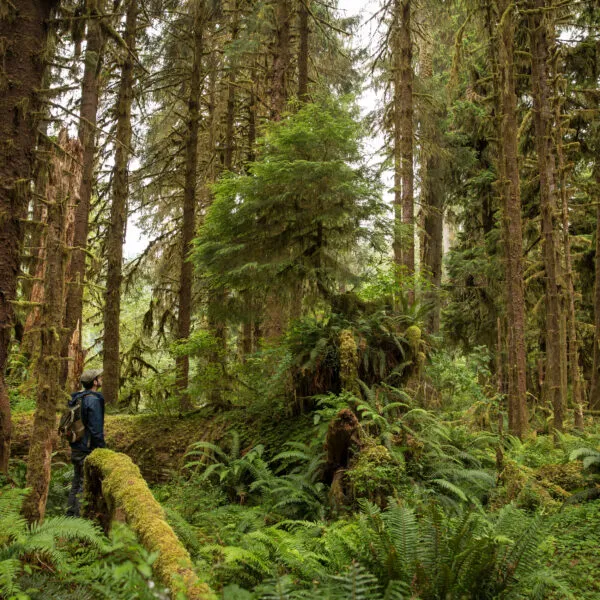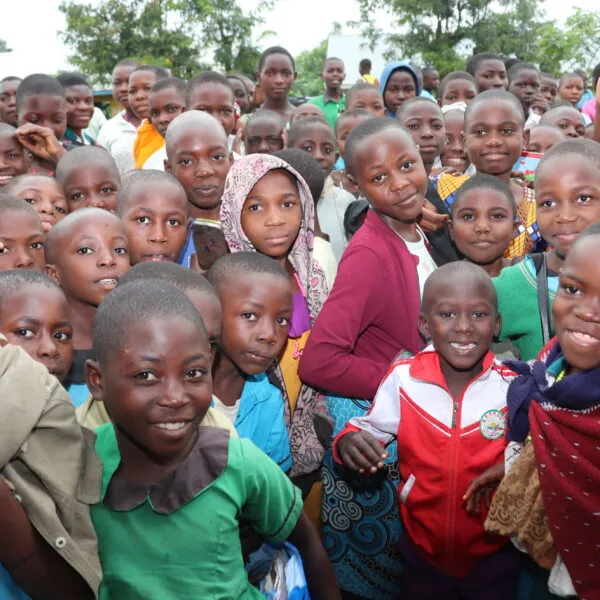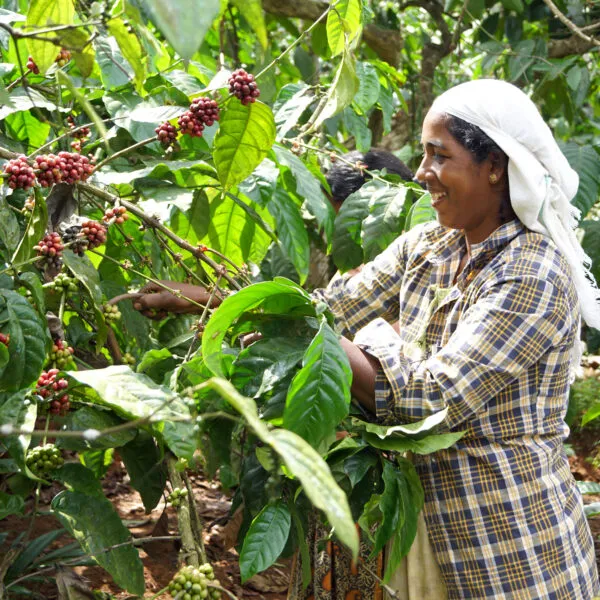Chiapas, Mexico is a region known for its rich biodiversity and deep-rooted traditions, as well as its important contribution to national coffee production. 40 percent of the country’s coffee is grown here, benefiting about 200,000 local people.
But these coffee landscapes face significant challenges, including deforestation, land-use change and fires, which all threaten the economic well-being and social cohesion of the local communities that depend on them. Furthermore, many communities belong to Indigenous groups that were displaced from their original municipalities—which means they aren’t familiar with local edible plant species, or how to cook them. Consequently, they struggle to have adequate nutrition.
To address these challenges, the Rainforest Alliance—with support from OXO and 1% for the Planet—is working with local communities on an initiative to strengthen their sustainable practices under a regenerative agriculture approach. The initiative aims to improve the livelihoods of the people who depend on forests, building alliances with partners from the private sector and academia to maximize the impact and long-term sustainability.
Location
Three coffee-growing communities in Chiapas, Mexico: La Ramona and Nuevo Mitontic in the Villa Corzo municipality, and Tiaquil in the Oxchuc municipality.
Project period
May 24, 2024 to April 30, 2025
Key commodity
Coffee
Priority issues
Human rights, forests & biodiversity
Partner communities
La Ramona and Nuevo Mitontic (Villa Corzo municipality) and Tiaquil (Oxchuc municipality). Among these communities are displaced Indigenous Tzotzil and Tzeltal families, who were forced out of their ancestral lands in the 1990s and settled in these localities after years of searching for a new home. These communities have faced significant challenges, including limited access to resources and support, making them particularly vulnerable.
Project objectives
Through this initiative we expect the following outcomes:
- 200 hectares (494 acres) stewarded under regenerative and climate-smart practices
- 100 local and Indigenous coffee farmers managing coffee agroforestry systems
- 3 communities trained in tree planting
- 160 people from 40 families trained in plant and trees nursery management
- 2 training modules on nutrition and diet enrichment
- At least 120 people from 30-coffee producing families will receive food education
The initiative will also:
- Enhance knowledge and adoption of sustainable agricultural practices: Learning innovative practices in regenerative and climate-smart agriculture; improving coffee-based agroforestry systems management and resilience to climate change, which also leads access to differentiated markets.
- Improve biodiversity through diversification of coffee production: Promotes local biodiversity conservation and boosts food and economic autonomy.
- Improve awareness of nutrition and locally grown diets. Promoting food education to enhance understanding of locally- grown nutritious diets, improving community health, and reducing diet-related illnesses.
- Build strategic partnerships: Collaborating with a private sector partner (OFI) and a local university (UNICACH) will help local communities strengthen their relationships with market actors and academia, fostering lasting collaboration and sustainability of actions taken.
Funders
Rainforest Alliance contact
Eileen Müller, technical projects lead: emuller@ra.org
